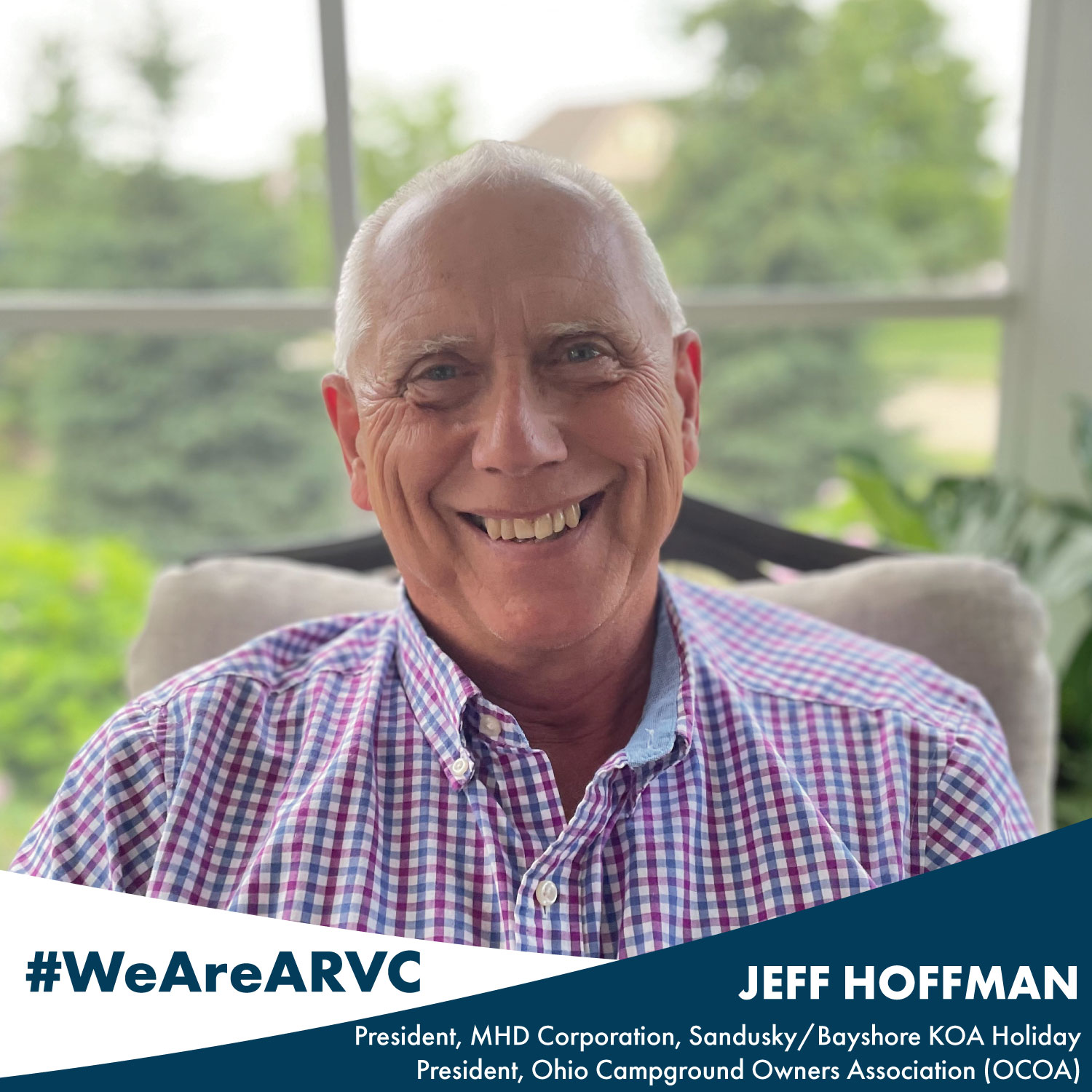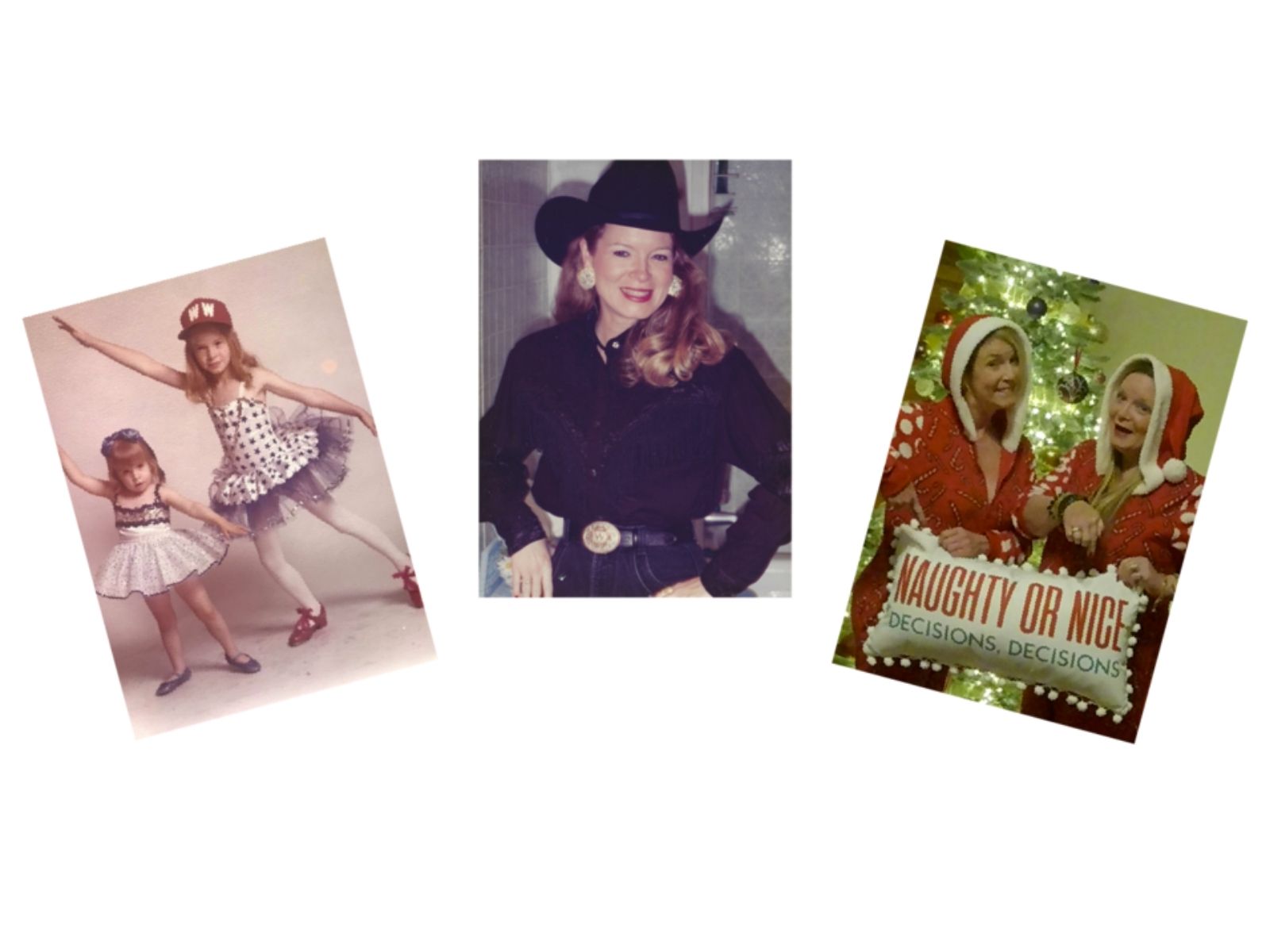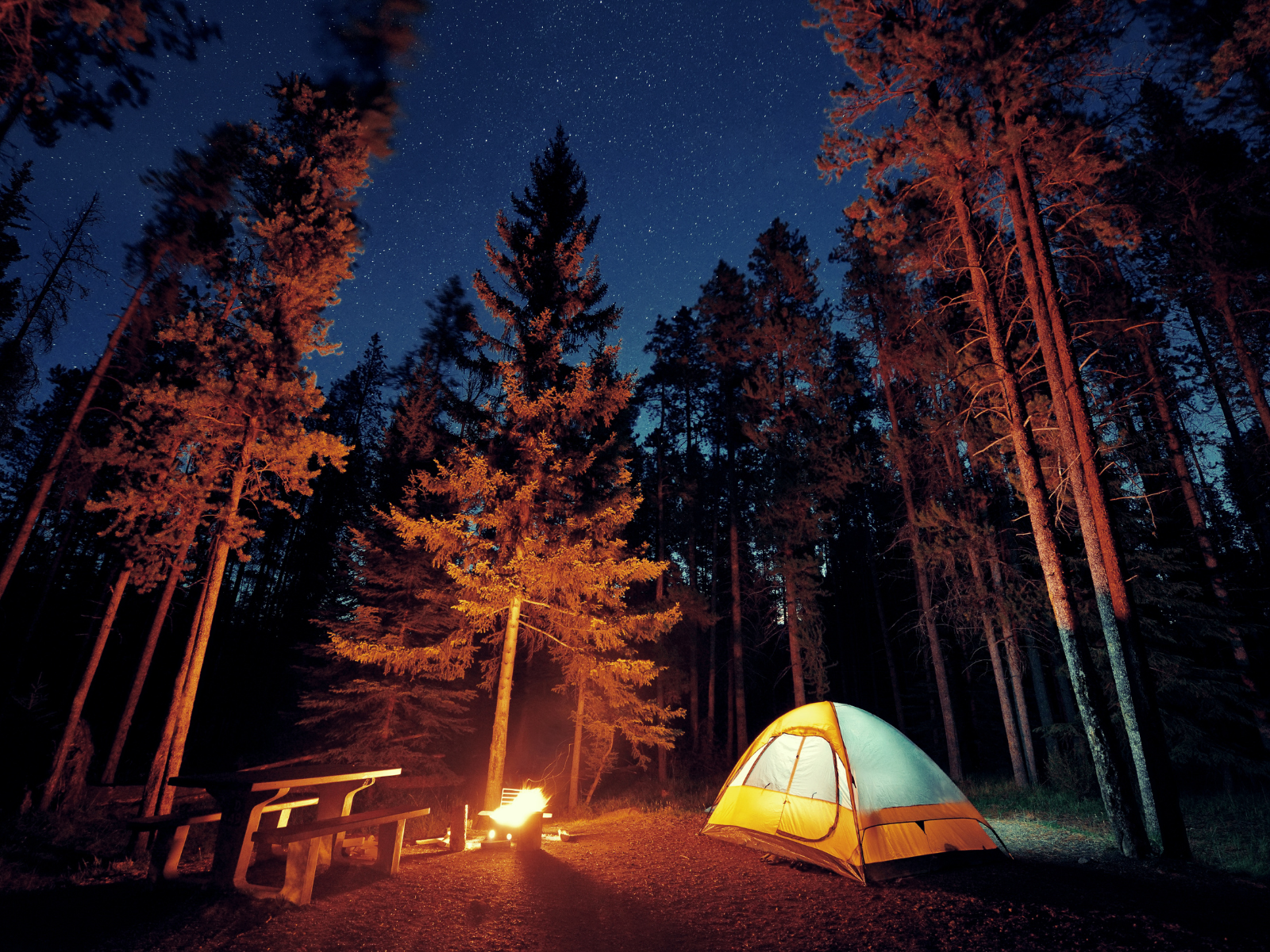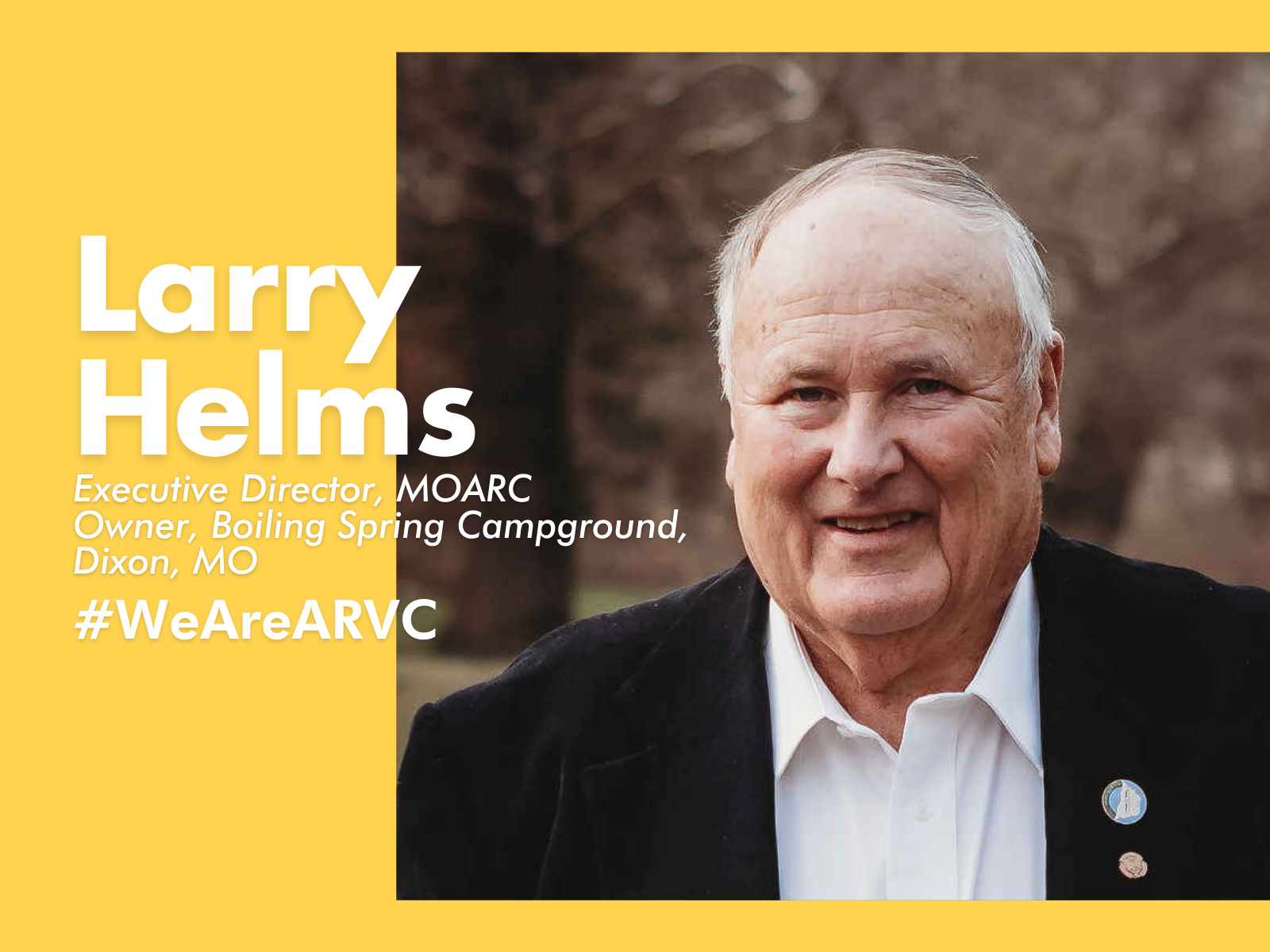Jeff Hoffman
President, MHD Corporation, Sandusky/Bayshore KOA Holiday, Sandusky, Ohio
President, Ohio Campground Owners Association (OCOA)
How did you get involved in the campground industry?
I started with our family business in 1968. We built an original campground that consisted of 34 sites with 20-amp electric. That campground has grown into Sandusky/Bayshore KOA, which now has 340 sites, almost all with water and sewer. The campground is owned by a corporation, and over the years, I purchased the corporation. I still see it as a family business and take a great deal of pride in that. I still pitch in to help wherever I’m needed and never walk past a piece of litter without picking it up. Campgrounds are part of my family’s legacy. Over my lifetime, we’ve owned about six different campgrounds.
What do you enjoy most about the industry?
I enjoy giving people a vacation. We strive to make sure our guests enjoy their time here. That goal drives not only our customer service training, but also our infrastructure. Your staff can be pleasant as you want them to be, but if the site’s broken, that affects the guest’s experience.
How long have you been involved with the Ohio Campground Owners Association?
I started with the OCOA around 1985, but then I had a few gap years because I was busy traveling the country taking care of our properties. I came back to the organization around the year 2000. About 10 years ago I was elected to the board and then I got elected president at the Spring 2020 meeting. My new position took effect just as COVID began to hit.
What were some of the first challenges you faced as president of OCOA?
The first one was trying to get our parks open through the governor’s different committees, which we did before Memorial Day weekend—a major win for us. Then the state’s operating guide for campgrounds came up for updating this year, so I now know way more about campground rules than I ever have in my life! There were all kinds of little details in there that I never knew about. For example, we had to fight to get one word changed so our campground owners wouldn’t be required to renumber all of their sites each time they added a new site in the middle of their park. And then they had a rule that you could have two mobile homes in a campground for the use of the general manager and one other person, but if you took them out, you couldn’t replace them. We got that changed, too.
Another issue you’re really involved with is the topic of inherent risk and liability at campgrounds. Where do OCOA’s efforts stand on getting legislation on this issue passed?
We based our bill on one that got passed in Wisconsin. We found two sponsors for it in the House and it passed the House in 2020. Then it went to the Senate and died in committee that year. I did testify before the House committee, but never got to the point where I testified before the Senate that year. This year, we got it through the House easily. I went and testified for the bill again, and it came through with no objections. I also testified for the Senate committee. Then it came up for objections, and there were no objections, so it should be coming to a floor vote within the month. We look forward to it being passed. It gives us some coverage, and clarifies some issues so that if, for example, somebody trips over a fire ring, they really can’t sue the campground owner. You can talk to them about maybe covering medical costs, but really, it’s inherent that you have fire rings in the campground. We’ve even had people that wanted to sue us because they’ve gotten stung by the hornets we have here in the fall. This bill would eliminate those sorts of issues.
What are your goals for OCOA for the coming year?
Well, the first one is to obviously get the liability bill passed and then to actually have an in-person, face-to-face fall meeting. I’ve not even gotten to pound my gavel yet! And then obviously, what we want to do, and I think what every association wants to do, is to grow our membership. I think we have some good things that we’ve done that we can now go to people and show them. We could actually get more things done if we had 70 percent of the campgrounds in the state as members.
How would you convince non-member campground owners to join their state association?
I would use COVID as an example. If we didn’t have strong numbers in our association and if we hadn’t represented them well through the state health department and the governor’s committee, I don’t believe we would have been open until July. We’re stronger as a unit than we are as individuals.






Leave A Comment